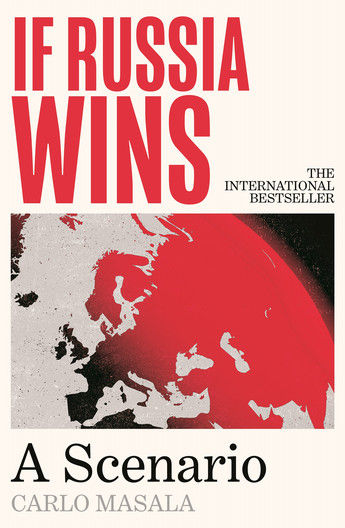If Russia Wins - A Scenario by Carlo Masala
- NZ Booklovers

- Sep 8, 2025
- 2 min read

Carlo Masala’s If Russia Wins: A Scenario is a chilling work of speculative analysis that blurs the line between political science and dystopian thriller. The book begins in March 2028, with Russia emboldened by victory in Ukraine and launching a surprise move into Estonia and the Baltic Sea. From this premise, Masala asks the most uncomfortable question facing Western security today: would NATO truly respond to aggression on its eastern flank, or would it hesitate, fracture and ultimately collapse under pressure?
As a professor of international relations and a leading expert on armed conflict, Masala brings academic weight to the exercise, but he deliberately writes with a broader audience in mind. His narrative style is accessible and at times cinematic, taking the reader from Kremlin decision-making rooms to NATO headquarters and on to the lives of ordinary citizens caught in the fallout. The effect is unsettling. The scenario reads less like an abstract academic model and more like a plausible near-future chronicle, one that feels uncomfortably close to reality.
At its heart, the book is not about predicting a single outcome but about warning against complacency. Masala highlights how fragile NATO’s unity could be in the face of nuclear brinkmanship, competing national interests and domestic populism. He illustrates how Moscow could exploit Western hesitation, much as it has in past conflicts, while also reminding readers that deterrence relies as much on credibility and political will as on tanks and aircraft.
Thematically, the book speaks to the broader crisis of confidence in liberal democracies. Masala suggests that if Ukraine were abandoned and Russia emboldened, authoritarian regimes would draw a dangerous lesson: that the West lacks the resolve to defend its values. The scenario also shows how quickly geopolitical tremors in one corner of Europe could cascade into global instability, touching issues from Arctic sovereignty to energy security. The spectre of nuclear escalation looms large, not in a sensationalist way but as a sober reminder of the stakes at hand.
Stylistically, the book is concise and fast-paced, at times reading more like a political thriller than a scholarly treatise. This approach may lack the elegance of literary fiction, but it serves a purpose. By blending accessible prose with rigorous insight, Masala ensures his warning reaches beyond specialists to policymakers and engaged citizens alike. The speculative format allows him to dramatise choices and consequences in ways that a purely academic paper could not.
In terms of significance, If Russia Wins functions as both intellectual exercise and urgent caution. It is not intended as prophecy but as a wake-up call about the fragility of the European order and the risks of underestimating authoritarian ambition. By situating his argument in a plausible narrative, Masala underscores the cost of inaction and the importance of sustaining support for Ukraine as a bulwark for wider stability.
This is a brief yet unsettling book. Its power lies not in predicting the future but in forcing readers to confront what might happen if current trajectories remain unchallenged. Masala makes clear that the peace Europeans take for granted is not inevitable. It is contingent, fragile, and dependent on choices being made now.
Reviewer: Chris Reed
Atlantic



